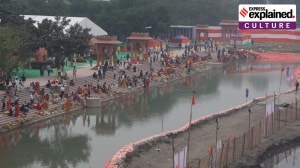Open domains
No matter how Orientalist,condescending and opinionated Max Mueller sounds today,which Indian can resist savouring the...
No matter how Orientalist,condescending and opinionated Max Mueller sounds today,which Indian can resist savouring the German indologists oft-cited statement of faith in India as the land where the human mind has most fully developed some of its choicest gifts,has most deeply pondered over the greatest problems of life,and has found solutions of some of them? But where is the Indian who would take pride in the present state of higher learning and research in India,in a land whose state-aided cultural institutions exist for the culture ministrys sport? Research in art and culture enhances and evolves the repository of a peoples knowledge,their ability to know and better themselves.
Almost invariably,the best such research pertaining to India has long been conducted abroad.
But after almost a half century of conceding research on ourselves to the West,the Union government has decided to open up Indias premier cultural institutions to scholars and academics from India and abroad. Currently applicable to 17 of the 49 institutions under the culture ministry,this is a firm,progressive step indeed. Independent scholars,provided they are eminent,will be able to access the resources and artefacts at institutions such as the Archaeological Survey of India,National Archives,National Library,etc and undertake research that could benefit all.
Part of the problem with high-quality cultural research in India has precisely been access. The state has always been irrationally,and unconvincingly,over-protective about documents and artefacts,to say nothing of the bureaucratic mesh that would exhaust any scholarly intent. Yet,out of the clutches of dangerous hands,these resources have failed their very purpose. But access is only part of the antidote; a sustainable revival of such research in India would need a near-complete overhaul of the administration of its cultural institutions and a revolution in ideas for the ministries of culture and human resource development.



- 01
- 02
- 03
- 04
- 05




























